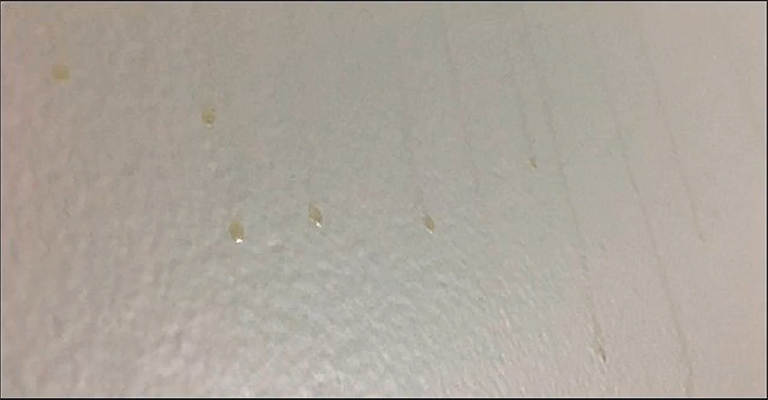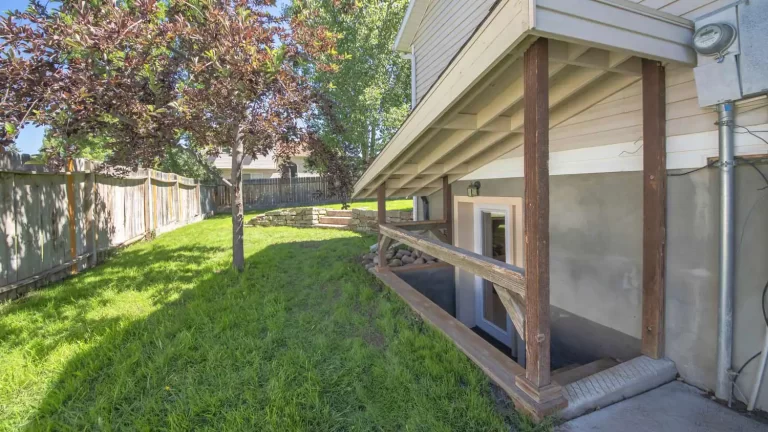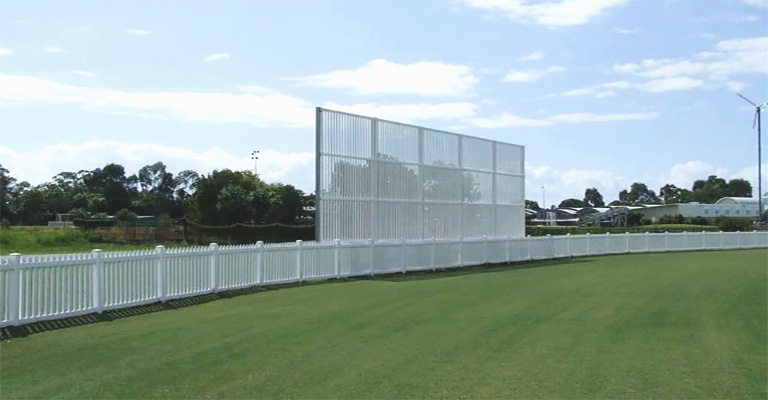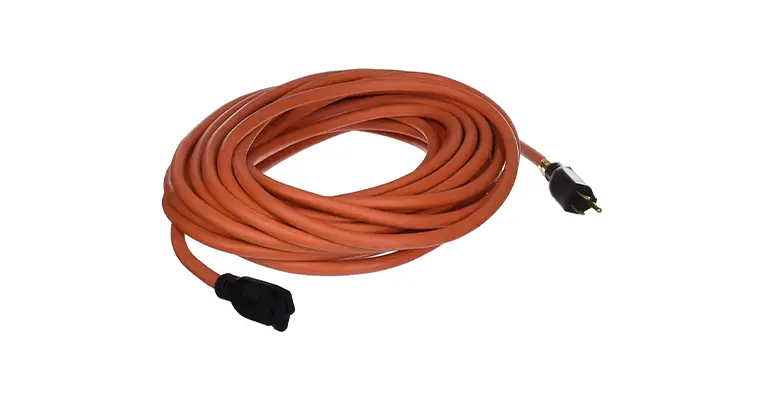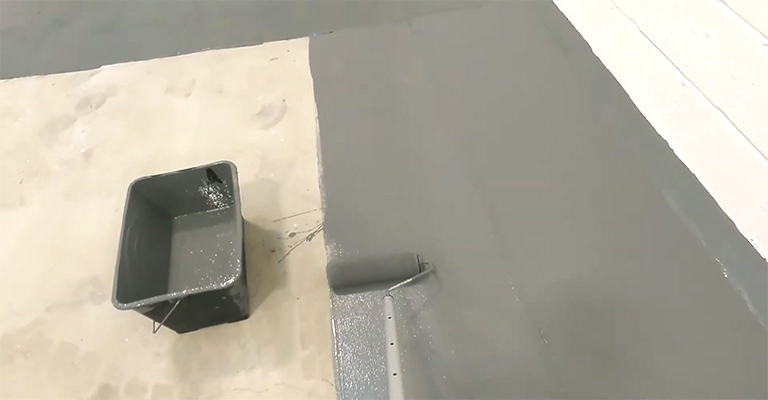Why Is My Propane Tank Hissing When Turned On?
Propane tanks are often used for heating, cooking, and other purposes. Therefore, they need to be checked periodically to ensure that they are functioning properly. If a propane tank is hissing, it means that there is an issue with the tank that needs attention.
You’ll eventually hear strange sounds coming from your propane tank, gas line, or appliances after firing up your backyard grill or turning on a gas-powered appliance inside your home.
For your safety and to protect your equipment, it is important to keep an eye out for odd noises that may indicate an issue.
When you get close to a propane tank, you will hear a hissing sound, which becomes louder as you get closer.
The new tank may not be working as it should for a number of other reasons. If you hear hissing from a propane tank and think it might be leaking, try these tips to determine what’s causing it.
Why Is My Propane Tank Hissing When Turned On?
It’s common to hear hissing coming from propane (or even natural gas) tanks. It is not the same as the gas rush you hear when you turn the line on. A gas leak usually causes hissing. In the event of a gas leak, immediate action should be taken. A damaged hose may be the only issue with portable units.
Remove the hose and immerse it in soapy water to determine whether it is the problem. When bubbles form, the line is damaged. Replacing the hose would be better than patching it.
There is a possibility that a feed line on larger tanks does not cause the hissing. The bleeder and relief valves should be checked if the hissing noise is coming from the tank itself. Simple closure of the bleeder valve should stop the hissing if it was open the last time the tank was filled.
It is likely that the relief valve is the source of the hissing if the plastic cap covering it has come off. Keep your distance from the valve and do not attempt to close it.
As part of the pressure release system, the relief valve is working properly. However, it is common for propane tanks to build up pressure on hot days. It should be possible to close the relief valve normally by cooling the tank with a water hose.
What To Do When My Propane Grill Tank Making Hissing Noises?
If you notice a propane leak in your propane tank, don’t immediately assume it’s a leak in your propane tank. A propane gas leak can also be detected by smelling rotten eggs, which is another dead giveaway. Instead, make sure you follow propane safety best practices as soon as possible if you do.
Put Your Senses To Use
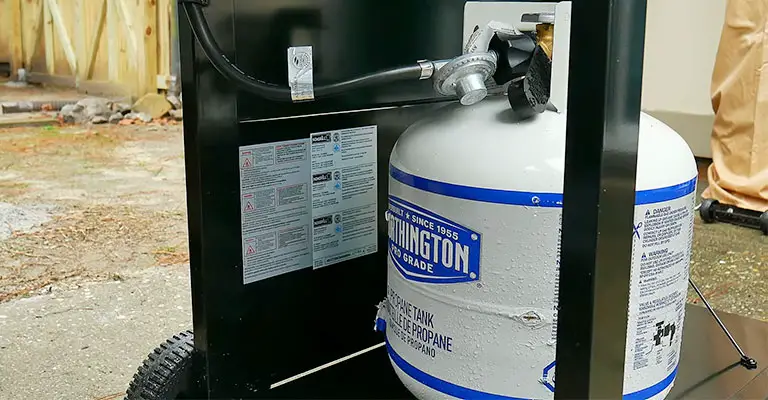
Tune into your sense of smell if you hear a hissing sound. As soon as you detect gas and have confirmed the situation is safe, turn the cylinder valve clockwise to turn it off.
You should leave the area and call your local fire department if you are unable to turn off the fire. Regardless, a qualified service technician will need to inspect your grill for leaks. Humming sounds without gas smells are normal.
You Need To Cool Down Your Tank
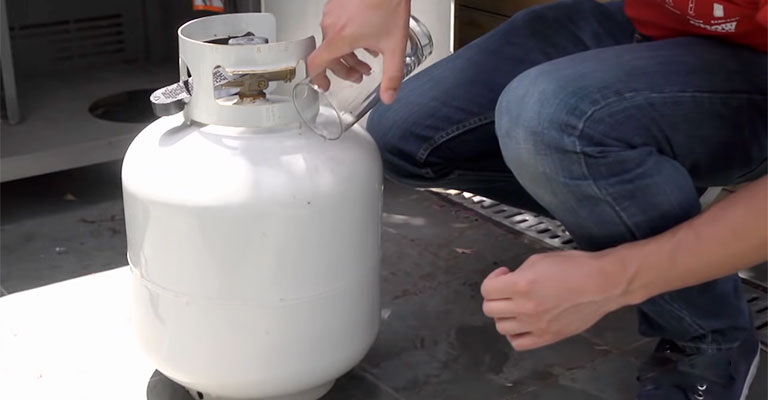
It is possible for propane tanks to build up extra pressure when they overheat due to the expansion of the liquid within the tank. Therefore, it is possible for the safety relief valve to open on extra hot days in order to release the pressure built up in the tank.
In this case, the pressure will open the relief valve by removing the protective cap. The relief valve should not be looked into or tapped with anything. It is important to avoid letting the relief valve open all the way.
Using a hose to spray water over the tank will result in the relief valve closing completely, which is the easiest fix.
Check For Leaks
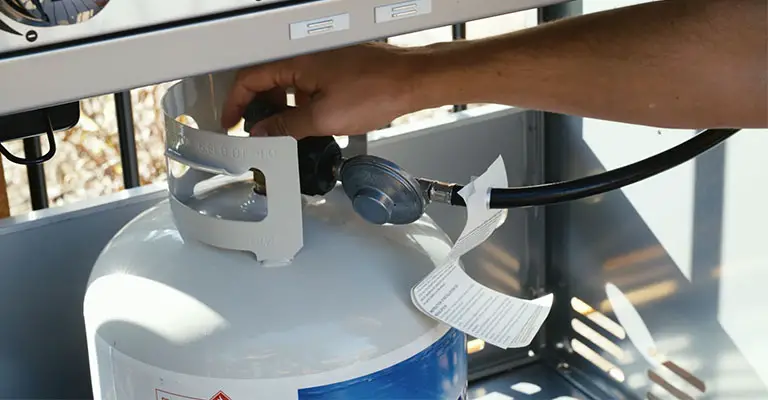
When it is safe for you to do so, you can perform a simple test to determine whether the hose or connectors are leaking gas. Add equal parts of water and liquid dish soap to a solution.
Make sure the gas tank’s cylinder valve is closed. Then, apply the solution along the gas hose and connections with a grilling brush or a spray bottle.
The cylinder valve should be opened and the connection between the hose and gas line should be examined for soap bubbles. It is likely that there is a leak when you see bubbles like this.
A qualified service technician should be contacted if bubbles are spotted in the cylinder, in which case the cylinder valve should be turned off and the leaking area replaced or repaired.
Want to learn more about Home improvement services?
Propane Tank Hissing: Other Possible Causes
It is possible that a propane leak does not cause the hissing sound. It may also be caused by other issues. Some examples are provided below:
1. A Relief Valve That Is Open
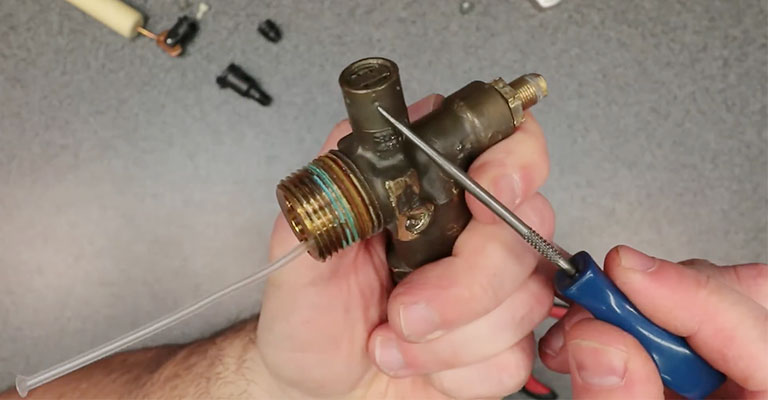
This valve releases pressure. All propane tanks and cylinders must have this feature. Why is it necessary? In hot weather, propane expands. Take a look at a summer day in Tennessee when it’s hot.
A relief valve might be open on a day like that. And that’s perfectly normal. While propane expands, it slowly releases the pressure it builds up, which is what it’s supposed to do.
With a garden hose, you can use cool water to spray the propane tank surface to relieve some pressure.
2. The Bleeder Valve Is Open
Liquid level gauges are also known as bleeder valves. Your propane delivery technician uses this small device to accurately check your tank’s propane level.
It is possible to hear a hissing sound if the bleeder valve is not closed tightly. The solution is simple if this is what’s happening. The gas flow and sound will be stopped by turning the bleeder valve clockwise.
3. Gas Leak
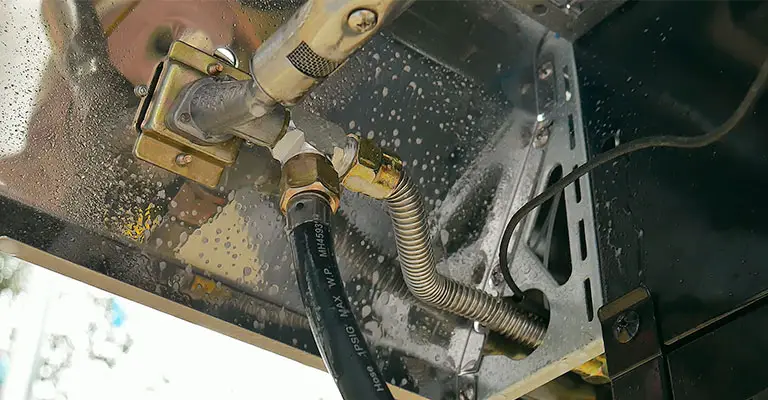
It is also possible to hear hissing when there is a propane gas leak. As soon as you smell gas, evacuate the area and call the authorities.
Alternatively, you can spray dish soap and water onto the gauge and other leaking areas of the tank if you do not smell gas and have tried both above options.
You have a leak if you see bubbles. There is a direct correlation between the bubbles’ size and the leak’s size. In the event that you find a leak, call the service to arrange for repairs.
Important Safety Tip
A propane tank relief valve should never be closed, looked into, or tapped. A propane leak may actually cause the hissing noise if it persists.
Propane Tank Setup: Make Sure It’s Right
The grill cover must be removed completely before setting up the propane tank, and the grill should be positioned away from flammable materials. Check that the gas has been turned off and that the used tank has been removed.
Remove the nozzle’s plastic cap after turning the service valve handwheel to the right. Connect the grill’s gas line to the nozzle and turn the coupler to the right until everything is secure. To open the propane tank’s gas valve, turn it to the open position.
What Is The Best Way To Prevent Propane Tanks From Hissing?
If you turn the bleeder valve clockwise, the gas will stop flowing, and the sound will cease. There is an open relief valve, and there is also a pressure release valve here. All propane tanks and cylinders must have this feature.
Propane is a dangerous gas if not used correctly. If your tank is connected to gas stove or gas fireplace make sure to keep flue open for gas to escape.
The Bottom Line
It is important to know how to handle propane properly with care and to be aware of any unusual sounds, as propane is a safe and clean fuel that has very little impact on the environment.
Over time, overuse and aging can cause propane tanks to make noise, however. Propane tanks, in general, last much longer than oil or electric fuel sources.
You might hear these noises coming from the propane tank itself or from the gas line connecting it. You don’t need to panic. There are a number of causes of hissing noises in propane tanks, including leaks and harmless components.

